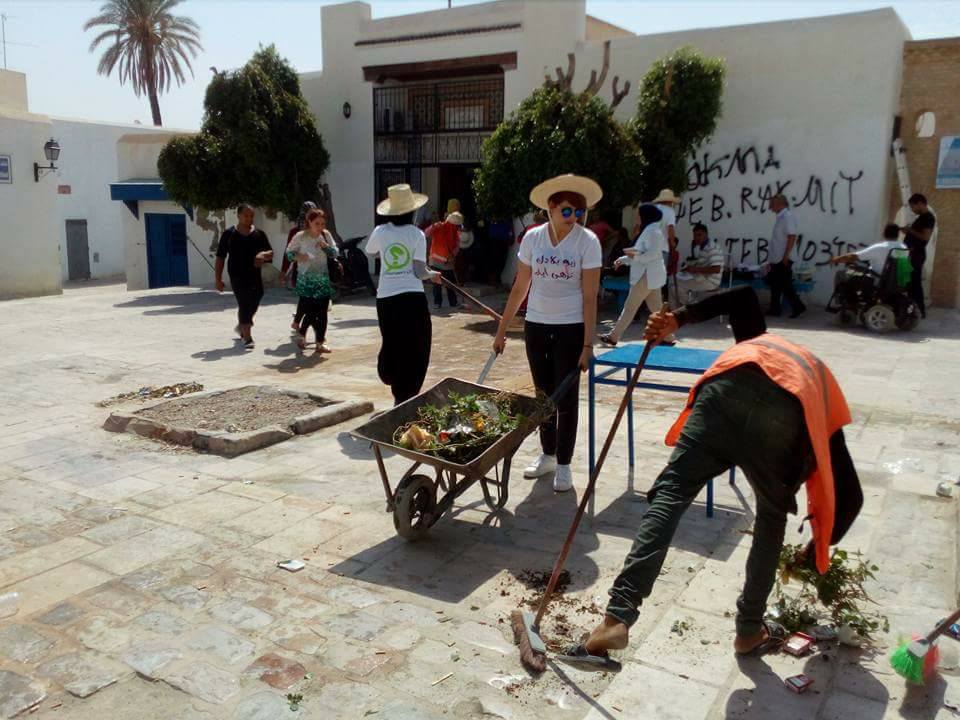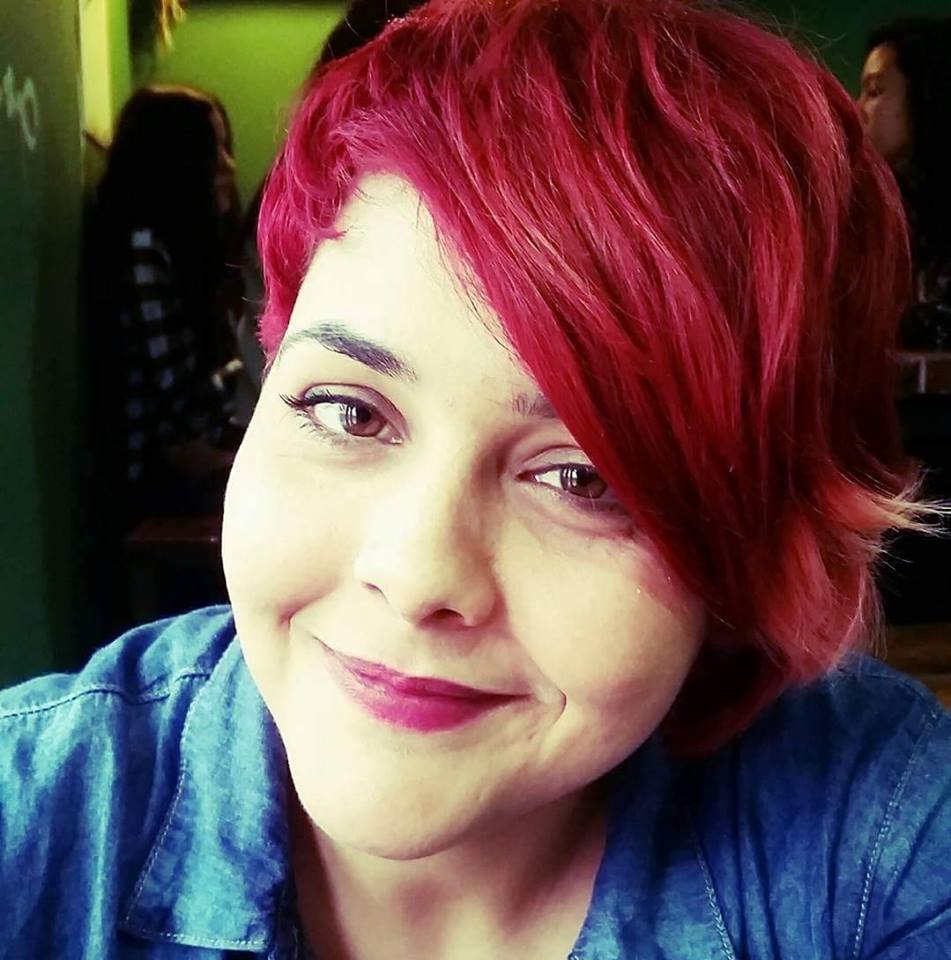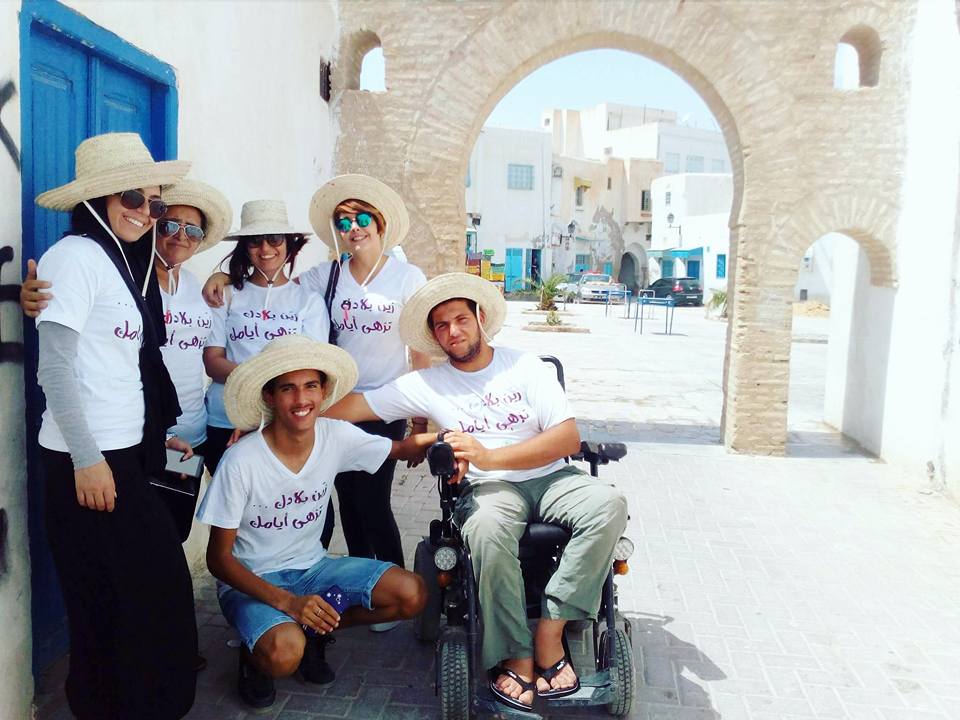Tunisian Youth: Civil Society has Changed Much of Tunisia’s Destiny

As a key bridge between citizens and decision-makers, strengthening civil society supports a citizen-oriented and citizen-driven approach to promoting democracy. To this end, IRI’s Civil Society Community of Practice is conducting a series of interviews with current and former civil society partners to highlight their work.
The following is a condensed and edited version interview with Hajer Saffar, a 28-year-old civil society activist in Tunisia who graduated from IRI’s Civil Society Academy and is an active member of IRI’s nationwide accountability network, Min Haqi Nsaalek. Saffar currently serves as the vice president of Youth Think, an organization that focuses on youth issues and youth political participation in Kairouan, Tunisia.
 Name: Hajer Saffar
Name: Hajer Saffar
Current Organization: Youth Think
Current Title: Vice president
Length of Time at Organization: 3 years
Location: Kairouan, Tunisia
What drew you to civil society work/ your organization?
Our work started at my university, where we launched a club called “Active Students” that focused on issues faced by students at the university. Eventually, wanting to expand our activities, we decided to partner with other youth to form an association that deals specifically with youth problems in Kairouan, a marginalized area in Tunisia. My main goal in building this association was to involve other youth in Tunisia’s democratic transition.
What projects are you currently working on?
Our association is focusing on civic education, raising awareness about local elections, promoting how to be an active citizen, and increasing women and youth participation in political decision-making.
What work have you done that you are proudest of?
To me, being proud of something I’ve done is always related to how much impact you leave on people. I came to this realization after a community-building activity that I organized a few months ago, which involved two days of cleaning and decorating the old area (medina) of Kairouan. Our activity drew attention from citizens of all ages, many of whom asked us to include them in our next activities. That was one of the moments that I still feel very proud of.
What is a big challenge you have faced during your work?
My biggest challenge came when I wanted to join a group in the “Tunisian Association for Democratic Women” whose role was to listen to and work with women victims of violence. It was hard for me to listen to a victimized woman’s stories, and even harder to help them through divorce procedures and to watch their children being involved in the process.
Where do you see your organization/yourself going with civil society work in the future?
In the short term, I see my organization working on bigger projects, being supported both morally and financially to achieve bigger goals on the local level, and not being limited to small activities that fail to reach a large number of citizens. In the long term, I see my organization spreading into other program areas and (why not?) branching further into the national level.
What is your biggest “ask” for the future of IRI’s work/international cooperation on civil society work?
My biggest wish for IRI and internationally-cooperative civil society programs is to focus more on civil society organizations in marginalized areas. CSOs in the middle of Tunisia like Kairouan, Sidi Bouzid, Kasserine need support and are sometimes forgotten.
What is your outlook for the future of civil society in the country?
I think civil society has changed much of Tunisia’s destiny already – it plays a major role in building and maintaining democracy, and I think the future of Tunisia depends on civil society more than political parties and decision-making authorities. If we as civil society activists keep on fighting corruption, nepotism, and discriminations and keep encouraging effective participation, responsiveness, consensus orientation, equity, inclusiveness, and government accountability, then civil society will definitely continue advancing a brighter future for Tunisia.

What role do you think civil society should play in Tunisia?
First, I think civil society should focus more on promoting political participation, which NGOs can do by educating people about their rights and obligations as democratic citizens, and encourage them to vote in elections no matter what. Second, I strongly believe that NGOs should help develop programs for democratic civic education in Tunisian schools. Youth are the next generation, and we are going to rely on them to keep our society moving the right direction – after a dictatorship, comprehensive reforms are needed to revise school curricula, rewrite textbooks, and retrain teachers to educate young people about democracy. Civil society must always be involved as a constructive partner and advocate for democracy and human rights training.
Top